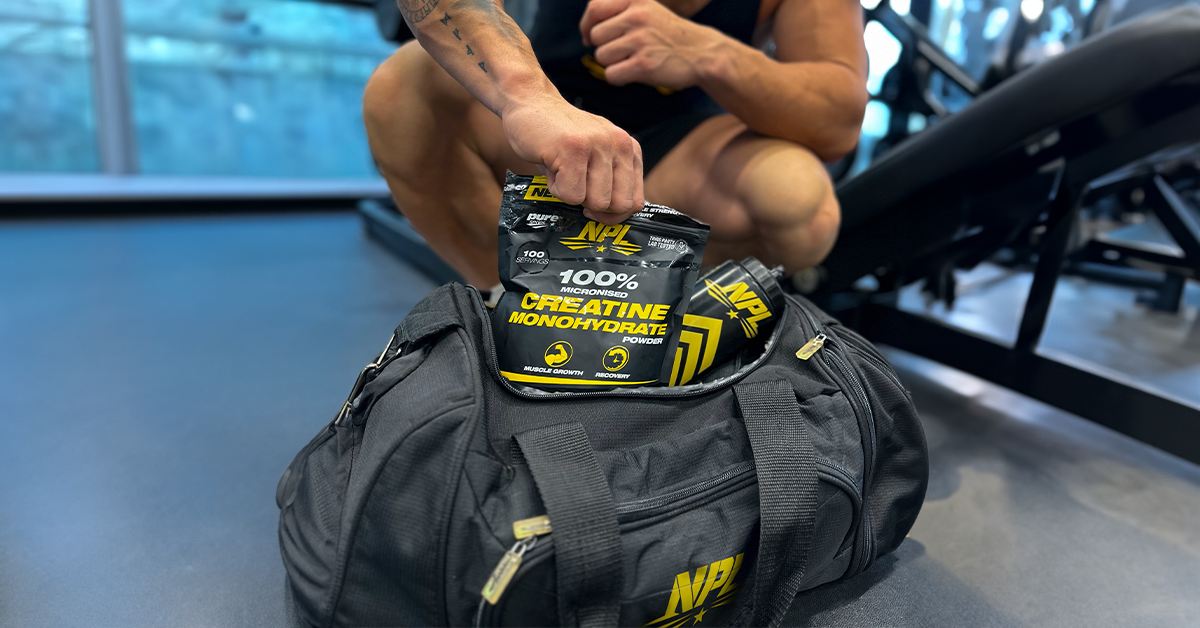Why Is Creatine So Popular?

The Many Benefits of Creatine
Creatine has long been a favourite among athletes for its multifaceted benefits. Beyond contributing to a "fuller," more defined physique, it also supports lean muscle growth, enhances strength and endurance, aids muscle recovery, and elevates overall athletic performance. With a wealth of research backing its effectiveness, creatine remains a valuable addition to any supplement stack, helping athletes of all levels reach peak performance.
How Creatine Works
Creatine's effectiveness lies in its ability to enhance the production of adenosine triphosphate (ATP), the primary energy source for muscle contractions. By boosting ATP production, creatine allows muscles to perform at maximum while drawing extra water into muscle cells to increase hydration, maintain endurance and reduce fatigue during intense exercise. This allows athletes to push harder for longer.
Loading & Maintenance Phase
Two phases are typically involved when starting to take creatine—loading and maintenance. While some choose to load creatine, usually taking between 15-20 grams per day for 5-7 days, others prefer to skip this phase and begin with a maintenance dose of 3-5 grams per day. Although loading creatine may help you reach muscle saturation faster, a loading phase is not essential. The maintenance phase, with a lower daily dose, is sufficient to sustain levels and continue experiencing benefits.
Common Misconceptions
Let's debunk some common misconceptions about creatine. Despite its well-known benefits, some misunderstandings have clouded its true potential.
Creatine is a naturally occurring compound found in foods such as meat and fish, and our bodies naturally produce it as well. But solely relying on food to get enough can be quite tricky. That's why many opt for supplements to ensure a consistent intake.
Common concerns about potential side effects such as dehydration, kidney damage, digestive issues and weight gain have largely been disproved. Research consistently shows that creatine is safe to use within recommended doses, with no significant long-term negative effects.
Think creatine is only for men? The idea that creatine makes women "bulky" is not true. With lower testosterone levels, women typically experience modest muscle gains from creatine supplementation, depending on their genetics and training intensity.
Creatine isn't just for bodybuilders and weightlifters. Its advantages extend beyond the gym to various sports, including sprinting, long-distance running, team sports and any activity requiring strength and endurance. Alongside its positive effects on athletic performance, creatine may also offer surprising advantages, such as improved cognitive function and brain health.
Finding Your Creatine
Finding your ideal Creatine is made easy with NPL's wide range of offerings, customised to meet individual goals and preferences:
Creatine Monohydrate: Provides pure, easily absorbed creatine, promoting lean muscle growth, increased strength and faster recovery.
Creatine Fuel: Maximises muscle-cell volumisation, enhances ATP production and boosts power output with an advanced delivery system and unique carbohydrate blend.
Creatine HCL: Offers concentrated creatine hydrochloride for increased muscle cell volumisation, strength, power and workout capacity without water retention, thanks to enhanced solubility.
Crea-B-Taine: Combines specialised creatine with betaine anhydrous for improved muscle strength, size and power, supporting lean muscle mass and sports performance without added sugars or excess calories.
Crea-Force: Combines monohydrate and betaine anhydrous to enhance muscle strength, recovery, and cell volumisation. Includes beta-alanine and taurine for boosted power output and ATP production.
Anabolic Whey: A premium protein shake infused with creatine to stimulate lean muscle growth, strength and natural growth hormone production. Contains 27g of protein per serving, ideal for muscle building and recovery.
While creatine showcases exciting benefits, remember that everyone's experience will be different, influenced by factors like genetics and overall health. Consistency is key, and staying committed is necessary to see improvements in strength, endurance and aesthetics. Before starting to take creatine, it's important to consult with a healthcare professional. They'll provide personalised guidance to ensure you maximise the benefits while keeping your health in check.






